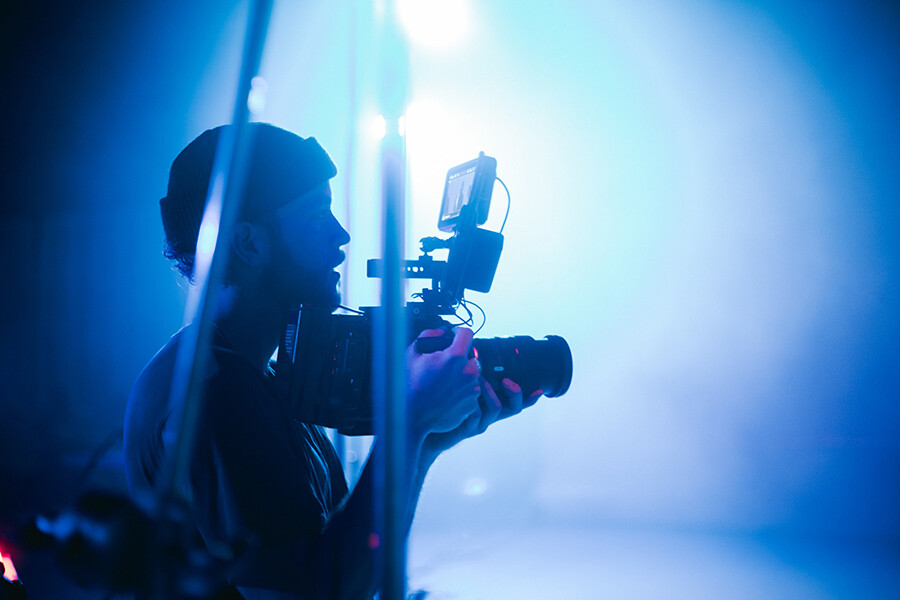- Accueil
- La recherche
- Mémoires et Travaux de fin d’études
- Le direct au cinéma : quand l’instant entre sans frapper.
Le direct au cinéma : quand l’instant entre sans frapper.
Auteur : PASTIERIK Thibault
Directeur(s) de mémoire : Tony Gauthier
Cinéma
Résumé : Hier je prenais un verre au bar avec une amie, du côté de Bagnolet. Il commençait à faire tard et la serveuse, qui était d’humeur moite-moite, nous a mis dehors. En voyant l’heure et le nombre de correspondances que me réservait l’itinéraire Google Maps pour rentrer chez moi, je me suis mis à débiter tout un sirtaki d’insultes bien senties. Mon amie m’a alors parlé d’une
expérience faite avec deux bols de riz. Sur l’un on avait écrit « je te déteste » et sur l’autre, « je t’aime ». Trois fois par jour, on avait insulté le premier bol et dit des mots d’amour au deuxième. Les deux bols étaient conservés au même endroit, dans les exactes mêmes conditions. Après deux semaines de « traitement », on avait constaté que le premier bol était à un stade de décomposition bien plus avancé que le deuxième.
J’ai dit à mon amie que je ne voyais pas où elle voulait en venir. Elle m’a dit qu’on avait tous le moyen d’accéder au bonheur si on se concentrait sur l’instant présent. J’ai dit que je n’aimais pas qu’on m’explique comment être heureux. Elle m’a dit qu’elle était d’accord. Mais j’aime bien cette idée que le bonheur n’est pas quelque chose d’extérieur, qu’il ne s’agit pas d’un objectif mais plutôt d’une fin en soi instantanée.
L’instant présent est à la mode, un peu comme les chaussettes à motifs. Tout le monde autour de moi en parle. Au cinéma, l’instant présent, ce n’est pas vraiment le sujet. On préfère prévoir, anticiper, penser à tout sauf à l’instant présent. De toute façon cette chose ça ne se pense pas, et c’est bien l’intérêt. Néanmoins, certains sont déjà parvenus à intégrer l’instant au processus
de fabrication cinématographique. Cela demande certaines méthodes alternatives, mais ça fait se poser la question :
Ça donne quoi du cinéma à l’instant ?
Mots-clés : acteur, casting sauvage, collectif, découpage, direct, imprévu, improvisation, instant, multi-cam, prise unique, production, scénario, tournage
—
Abstract: Yesterday I was having a drink with a friend, around Bagnolet. As it was already late, the waitress –quite moody – pushed us out. When I looked at my watch and saw all the connections in Google Maps directions to go home, I started to reel off a whole sirtaki of insults. My friend then told me about an experience with two rice bowls. On the first was written “I hate you” and on the second, “I love you”. Three times a day, someone was charged to insult the first bowl and to whisper words of love to the second one. The two rice bowls were kept at the same place, in the exact same conditions. After two weeks of “treatment”, it turned out that the first bowl was in a state of decomposition way more advanced than the second one. I asked my friend
what she was trying to say. She told me that everyone had the means to reach happiness through the present moment. I said that I didn’t want anybody to tell me how to be happy. She said she agreed. But I enjoy this thought that happiness is not something from outside, that it’s not a goal, but more an instantaneous end in itself.
The “present moment” is fashionable, a bit like socks with patterns. Everybody around me speaks about it. In the film industry, the present moment is not a general idea. We rather plan, anticipate, think about everything except the present moment. Anyway, all the purpose of that
thing is that it cannot be thought. However, some succeeded in including “the moment” along the film fabrication process. This requires alternative methods, but the question is worth asking:
What instant cinema is like?
Keywords: actor, collective, direct, improvising, instant, multiple-camera, open casting call, production, screenplay, shooting, shooting list, single take, unforeseen



